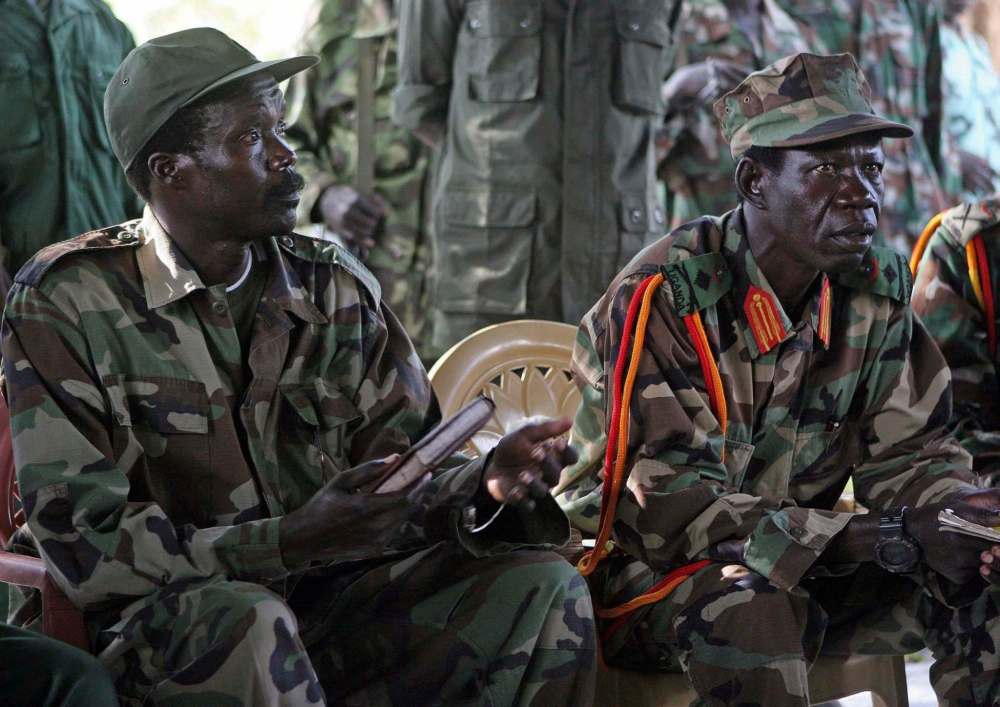The strength to endure
Plight of African citizens detailed in stories of courage, selflessness
Advertisement
Read this article for free:
or
Already have an account? Log in here »
To continue reading, please subscribe:
Monthly Digital Subscription
$0 for the first 4 weeks*
- Enjoy unlimited reading on winnipegfreepress.com
- Read the E-Edition, our digital replica newspaper
- Access News Break, our award-winning app
- Play interactive puzzles
*No charge for 4 weeks then price increases to the regular rate of $19.00 plus GST every four weeks. Offer available to new and qualified returning subscribers only. Cancel any time.
Monthly Digital Subscription
$4.75/week*
- Enjoy unlimited reading on winnipegfreepress.com
- Read the E-Edition, our digital replica newspaper
- Access News Break, our award-winning app
- Play interactive puzzles
*Billed as $19 plus GST every four weeks. Cancel any time.
To continue reading, please subscribe:
Add Free Press access to your Brandon Sun subscription for only an additional
$1 for the first 4 weeks*
*Your next subscription payment will increase by $1.00 and you will be charged $16.99 plus GST for four weeks. After four weeks, your payment will increase to $23.99 plus GST every four weeks.
Read unlimited articles for free today:
or
Already have an account? Log in here »
Hey there, time traveller!
This article was published 21/10/2017 (2972 days ago), so information in it may no longer be current.
The meme “first-world problems” refers, sometimes flippantly, to insignificant inconveniences faced only by those who live in relative luxury in stable, free countries.
People in much of the rest of the world, meanwhile, have to deal with real problems.
New Yorker staff writer Alexis Okeowo examines four areas of Africa where real problems are a way of life in her gripping and sobering first book.

Born to Nigerian parents in the U.S., Okeowo visited Nigeria once as a child, and interned at a newspaper in Uganda (looking for adventure, she says) after growing up in Alabama and graduating from Princeton University. In America and Nigeria, Okeowo describes feeling “as an outsider in both places, an observer at the fringes.”
This “third-culture” perspective gives her observations of African issues simultaneously startling and dispassionate qualities, allowing the reader to experience the devastation endured, and sometimes transcended, by the “ordinary women and men” whose stories she tells.
The book opens with four introductory chapters, setting the personal and historical situations in Uganda, Mauritania, Nigeria and Somalia, through the lives and circumstances of particular people. Part two shows the aftermaths of these devastating experiences, and the desperate attempts to live “normal” lives in spite of the evils they have undergone.
In Uganda, Eunice’s story begins when she was kidnapped by the vicious Lord’s Resistance Army of Joseph Kony and forcibly married to LRA member Bosco. She was initially raped, but the two eventually committed to each other and to their children, and escaped back to freedom.
Their lives after the LRA show the ambivalence of their families and their culture to those who experienced — and committed — unspeakable atrocities.
The story of Haby, a Haratin (dark African) slave of lighter-skinned “white Moors” who form the upper-class oppressors in Mauritania, introduces Biram Dah Abeid, a Haratin working to free slaves, individually and collectively, against the racism of the white Moors and the failure of his beloved Islam to counter either racism or slavery.
Okeowo’s almost casual description of Mauritania’s entrenched, actually systemic race slavery provides an infuriating revelation to westerners, who have perhaps not even heard of the country. At one point she scoffs at a white Moor’s attempt to show equivalence between actual slavery and the high level of African-American incarceration in the U.S.
Biram’s first chapter ends with a cliffhanger, but the conclusion is a real-life anticlimax, frustrating for those who would like a storybook ending where Biram succeeds in eliminating slavery in his country.
The Nigerian story concerns two characters, Abba and Rebecca, whose parallel experiences eventually lead them to the vicious depredations of Boko Haram, and the attempts by Abba — now called “Elder” — to stand up to another extremist corruption of his understanding of Islam.
Aisha, a Somali woman, finds her bliss playing basketball in spite of fundamentalist opposition to sports and western culture in her country, both by the governing sharia of the Islamic Courts Union, and the militant al-Shabab — “the youth.”
The ability of people who have suffered such depraved wickedness to somehow continue to live, and sometimes even thrive, is a testament to human resilience which provides some hope even in the face of such suffering.
If Okeowo’s “outsider” perspective can awake more awareness and action in first-world readers, perhaps it will lead to even more hopeful progress.
Bill Rambo, a “third-culture kid” whose American parents grew up in India and took the family to live in the Congo during his formative years, has lived in Manitoba since 1990.



